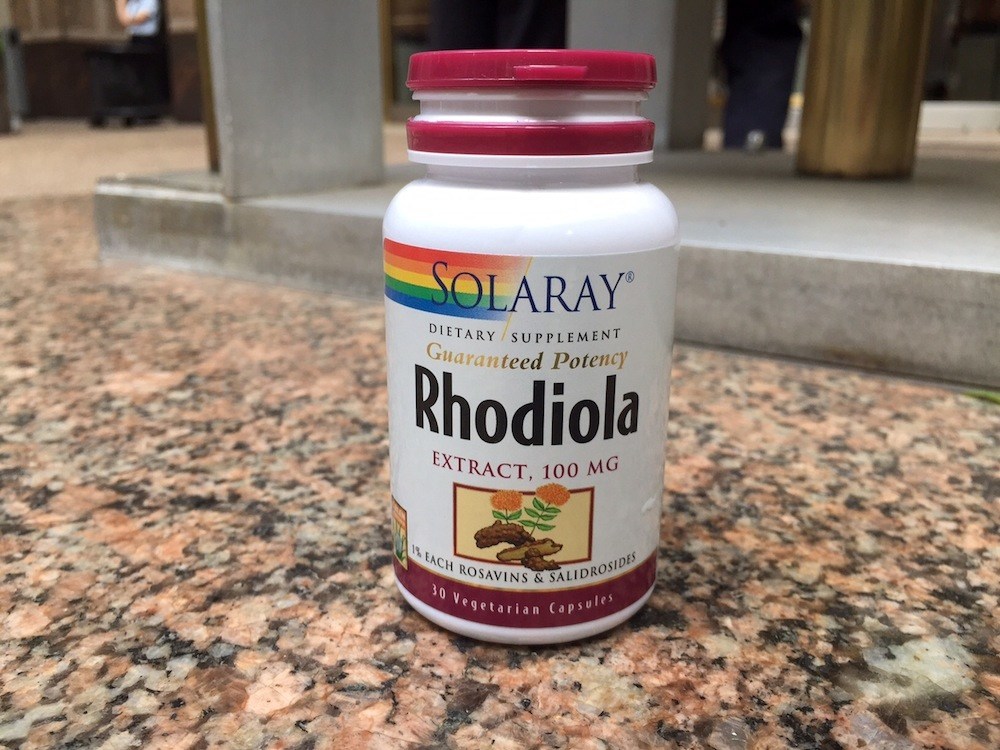Rhodiola rosea (also referred to as just “rhodiola”) is an herb native to Scandinavia. This popular “adaptogen” has been linked to multiple benefits for mental and physical health, including reduced effects from fatigue and stress, neuroprotective properties, and mental and physical endurance. (It has also been linked — in a very preliminary sense — to some anti-cancer and longevity properties.) BrainWiz has tried numerous nootropic stacks containing rhodiola — like Neurofuse — in addition to the herb’s extract as a standalone supplement.
 In supplement form, rhodiola extract usually contains between 1 and 3% rosavins and 1 and 2% salidrosides, the active compounds as far as the potential benefits listed above. Few side effects have been associated with rhodiola supplementation (up to 400 mg of extract per day), and those that have been noted (below) tend to be rare and relatively mild. It appears the majority of studies have identified few to no negative side effects, though their subject populations are usually small.
In supplement form, rhodiola extract usually contains between 1 and 3% rosavins and 1 and 2% salidrosides, the active compounds as far as the potential benefits listed above. Few side effects have been associated with rhodiola supplementation (up to 400 mg of extract per day), and those that have been noted (below) tend to be rare and relatively mild. It appears the majority of studies have identified few to no negative side effects, though their subject populations are usually small.
More research is needed to determine the frequency of rhodiola’s side effects, if any. Any side effects identified in scientific literature and research tend to be mild and of the type associated with other oral supplements or stimulants: possibly some jitteriness, flushness, trouble sleeping (when taken right before bed), and overstimulation when combined with too much caffeine or taken at too high a dose.
A few simple steps can help ensure users get the most out of rhodiola supplementation while minimizing the chance for side effects:
- Stick to recommended dosages, normally between ~100 and ~600 mg of extract per day (though some research suggests it’s effective in doses as low as 50 mg). Some research suggests more than that may actually negate the nootropic and anti-stress effects of rhodiola.
- Take rhodiola or rhodiola-containing supplements in the morning or early afternoon to avoid overstimulation before bedtime (which could lead to difficulty sleeping).
- When starting rhodiola supplementation, begin small with a partial dosage in order to assess your body’s tolerance.
Rhodiola rosea is one of the most common, effective ingredients in nootropic stacks, and many of our testers enjoy it on its own for its anti-stress and mental endurance benefits.
However, if you experience any adverse side effects from rhodiola or have a condition that makes you especially sensitive to stimulants, impacts brain function, or causes adverse reactions to medications or supplements, it’s best to seek the advice of a medical professional before beginning any new supplement regime.
The post What Are The Side Effects Of Rhodiola Rosea? appeared first on Brain Wiz.
No comments:
Post a Comment